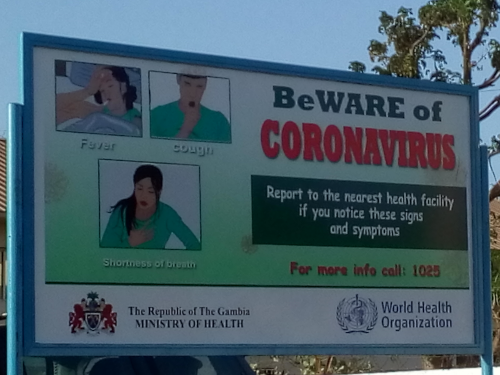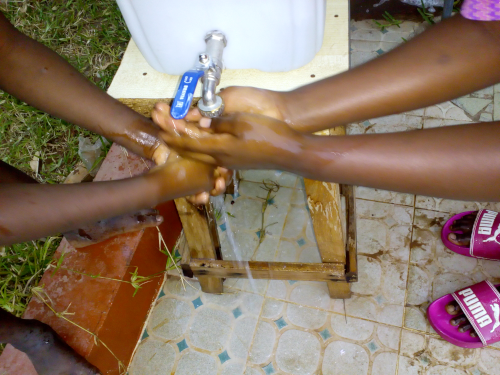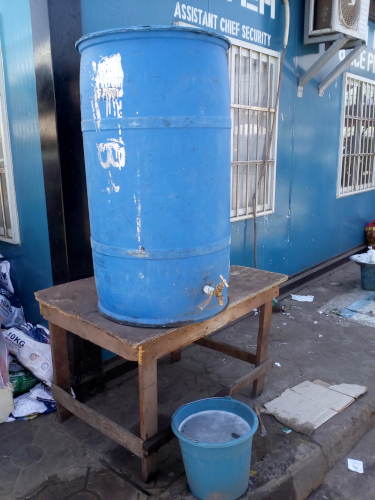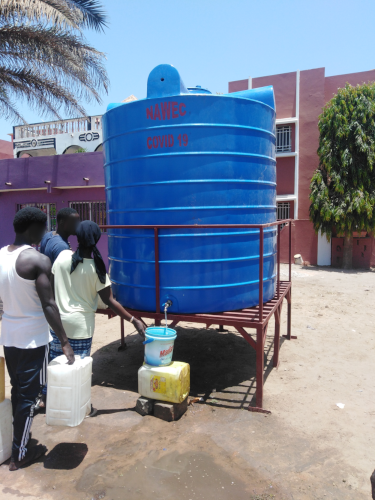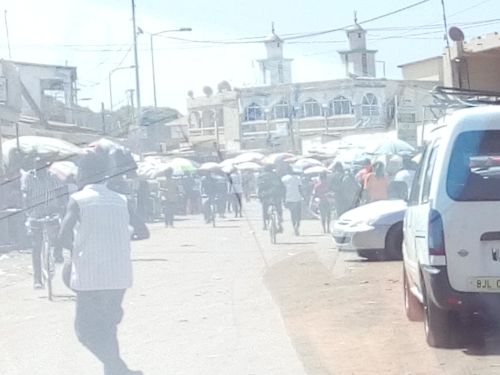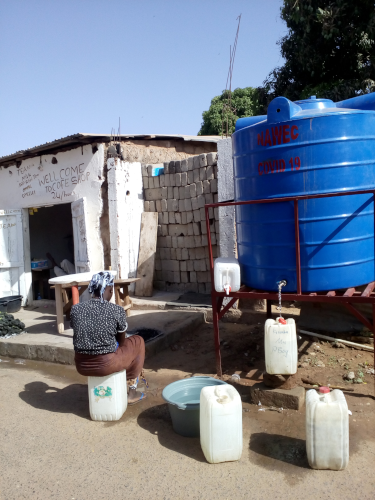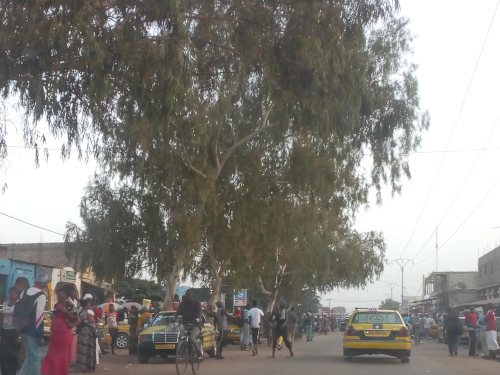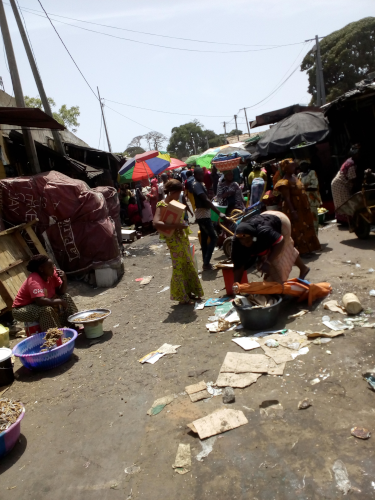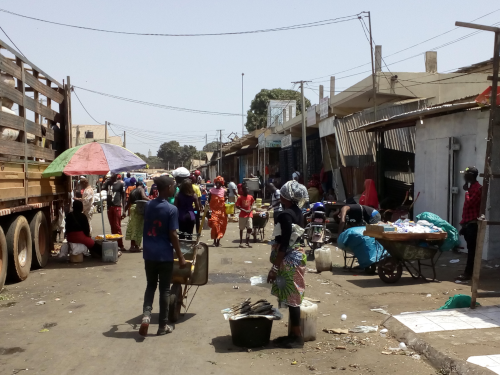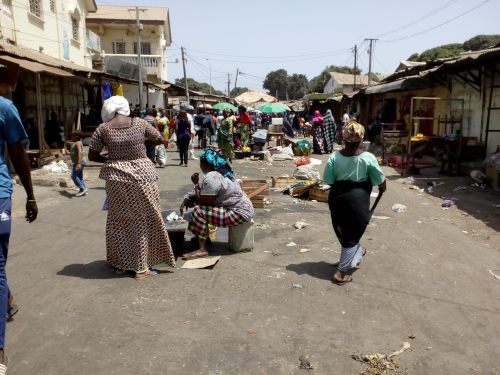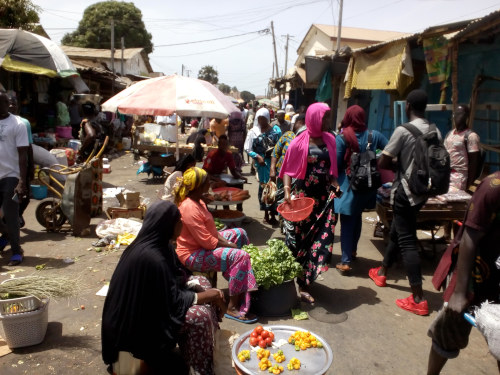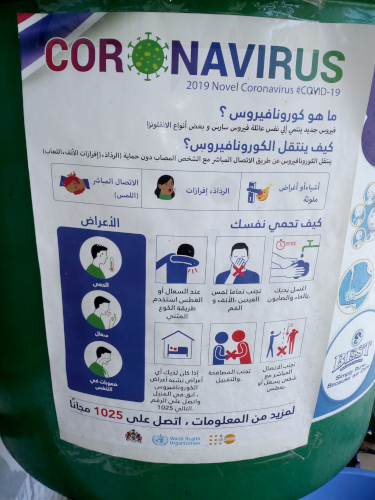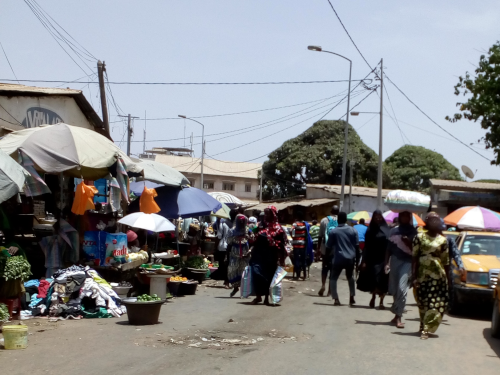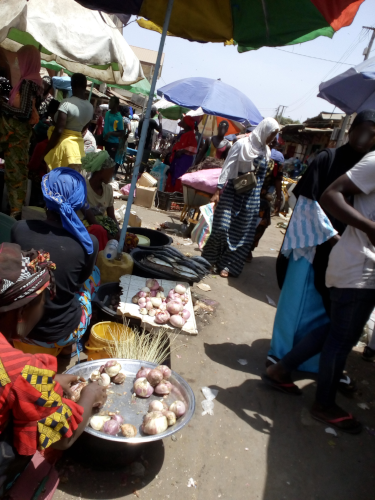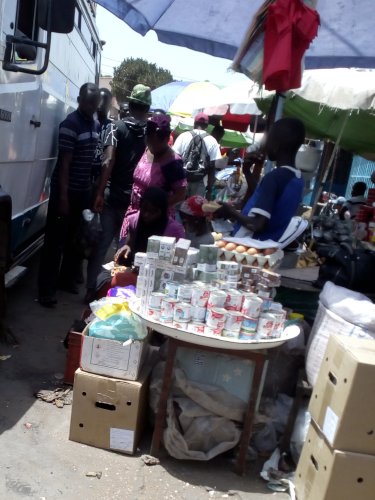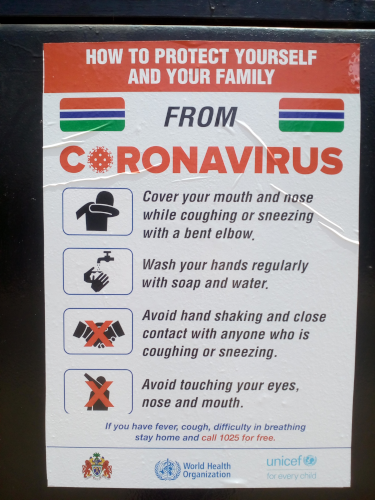21 April 2020 – On 19th April 2020 Gambia registered a new case of Coronavirus, bringing the number of active cases to seven, while two have recovered and one person died. There were 362 samples tested from 337 suspected cases so far.
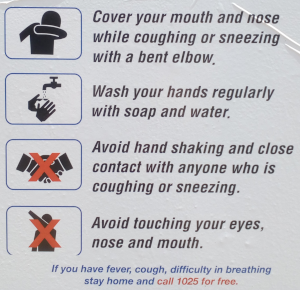 Since president Barrow declared the public state of emergency on 27th March, the National Assembly extended the state of emergency on 3rd April by 45 days as part of measures to curb the spread of the Coronavirus in The Gambia.
Since president Barrow declared the public state of emergency on 27th March, the National Assembly extended the state of emergency on 3rd April by 45 days as part of measures to curb the spread of the Coronavirus in The Gambia.
But people are not taking the Government’s declaration seriously, and they are mingling as usual. Many people would ask “how are we going to survive if we stay at home?” The market vendors were allowed to open in the early hours of the morning and close by 6pm but after registering more cases of COVID-19 the markets started closing by 2pm. Beside restrictions on the markets and businesses, there was a regulation on public transportation.
On Friday, 17th of April, the measures relating to the state of emergency were modified, now shops selling food items are allowed to open till 1pm, and from 2pm til 6pm, shops selling non-food items are allowed to open.
The markets are full because of the coming of Ramadan, which is why people are busy shopping for essential items. Being 96% Muslims this is indeed a very disruptive season and a bad time to enforce physical distancing (aka social distancing).
Since the state of public emergency was declared, it can be observed that many shops are open around the country. As time passes, it seems people are not taking it to a be global fact, believing that the Coronavirus is not in the country, that it is not true or that it’s just based on politics. Some people are forced to go out to find basic needs, whiles others just ignore that the virus can infect anyone.
 The Gambia has so far 10 recorded cases out of which 2 recovered, 1 died and 7 active cases who are currently hospitalized. Two cases out of this were locally transmitted. This is after many people left quarantine not showing any symptoms. Meanwhile there are still 90 people under quarantine under government supervision.
The Gambia has so far 10 recorded cases out of which 2 recovered, 1 died and 7 active cases who are currently hospitalized. Two cases out of this were locally transmitted. This is after many people left quarantine not showing any symptoms. Meanwhile there are still 90 people under quarantine under government supervision.
Reports says that the Gambia will have three thousand hospitalizations and 181,000 COVID-19 infected cases around June to July if the people continue to ignore the physical distancing measures provided by health officials. But how they can do so if they don’t have any support? The state should provide sanitizers, face masks and food for the people. Without food in the house, people can’t stay home!
But even they stay at home, people have to learn lessons that would enable them to internalize the culture of washing hands, restricting handshakes and keeping a safe space when relating to others. These measures would empower people to join the fight to prevent COVID-19 from spreading.
“First of all, what will make the difference in slowing down the epidemic is a change in individual attitudes: the respect for the 1.5-metre physical distance we are told about and the application of basic individual hygiene measures.” Doctors Without Borders, MSF UK
More on the spread of the Coronavirus in West Africa:
- MRC, 2 April 2020: Urgent Action Needed to Control Further Spread of COVID-19 in West Africa
- MSF UK, 31 Mar 2020: From Ebola to COVID-19: West Africa must learn from the past and protect vulnerable people
